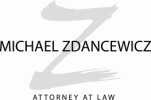 When a debtor files for bankruptcy, the automatic stay brings an instant halt to actions taken by creditors against that debtor. Legal proceedings of many kinds that may be in progress against the debtor must cease immediately.
When a debtor files for bankruptcy, the automatic stay brings an instant halt to actions taken by creditors against that debtor. Legal proceedings of many kinds that may be in progress against the debtor must cease immediately.
Federal law punishes creditors for violating the automatic stay. There are, however, instances in which the creditor may file a motion for relief from the stay. The court may lift the stay, depending on the circumstances delineated in the motion.
Who may bring a motion for relief? Certain creditors claiming that the bankruptcy filing does not grant them “adequate protection” and to whom the debtor owes payment, such as:
- Mortgage lenders — file to proceed to foreclosure
- Automobile lenders — file to proceed to repossession
- Landlords — file to proceed to eviction
- Creditors in Chapter 13 bankruptcy proceedings — file to assure payment of post-petition obligations
Many creditors will file a motion for relief as quickly as possible. Once a motion for relief is brought, the debtor is given the chance to defend. Matters proceed on different timelines depending on the type of bankruptcy filing.
Some jurisdictions do not require creditors to appear personally to file their motion for relief; they may be granted relief by filing a Notice of Presentment. Arizona law requires a creditor to appear at the motion hearing.
Generally speaking, the sooner a creditor teams with an experienced creditor’s rights attorney, and files a motion for relief, the sooner the creditor’s claim against the debtor can be successfully asserted.
If you would like more information about motions for relief from automatic stay in bankruptcy, creditors’ rights, or if you need assistance from an attorney, contact Windtberg & Zdancewicz to schedule an initial consultation.
The attorneys at Windtberg & Zdancewicz, PLC, provide clients with experienced legal representation in all collection matters. We are experienced in creditor’s rights including garnishments, charging orders, attachment, property execution, trustee’s sales, foreclosures, judgments, judgment collection, domestication of foreign judgments, and creditor’s issues in bankruptcy cases. If you need assistance with your collection matters, please contact us at (480) 584-5660.
